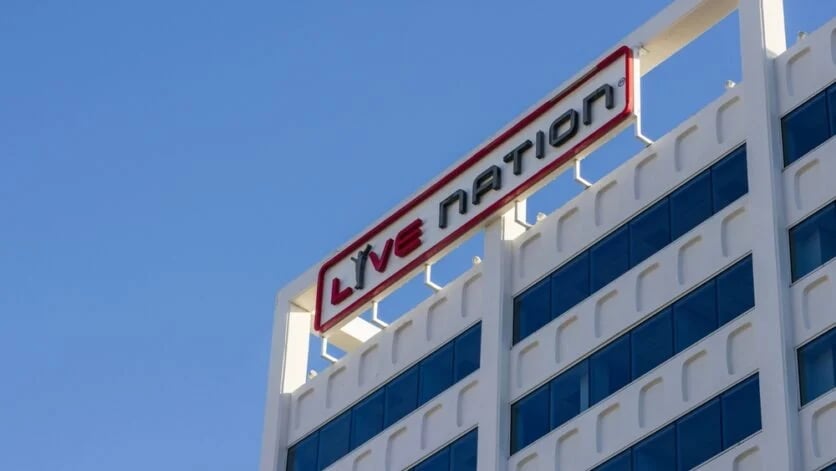Ticketmaster owner Live Nation has denied colluding with scalpers and violating anti-bot laws to drive up ticket revenue – but the company is planning to make changes to its ticket resale platform to assuage consumers’ concerns.
Ticketmaster plans to bar users, including ticket brokers, from operating multiple accounts on its platform, and also plans to limit the functionality of TradeDesk, an inventory database that allows ticket resellers to track their sales, according to a letter obtained by Forbes.
The letter was sent to US Republican Sen. Marsha Blackburn of Tennessee and Democratic Sen. Ben Ray Luján of New Mexico by Dan Wall, Live Nation’s EVP for Corporate and Regulatory Affairs. Wall was responding to a letter Blackburn and Luján sent to Live Nation on September 30, expressing “grave concern” over the Federal Trade Commission’s recent lawsuit against Live Nation.
In a complaint filed in a federal court in California last month, the FTC accused Live Nation and Ticketmaster of failing to uphold its own ticket purchase limits, in effect allowing ticket resellers to buy large batches of concert tickets and resell them to fans at a markup.
The complaint said the practice allowed Ticketmaster to “triple dip” on ticketing fees by collecting fees from brokers on the initial purchase, collecting from brokers again when the tickets are relisted on Ticketmaster’s secondary ticketing platform, and finally from fans when they buy the resold tickets.
The FTC also accused Live Nation/Ticketmaster of violating the BOTS Act, a 2016 law, co-sponsored by Sen. Blackburn, which bans the use of bots (algorithms that make automatic ticket purchases) in ticket on-sales.
In the letter to Sens. Blackburn and Luján, Live Nation’s Wall said the allegation Live Nation colluded with scalpers is “categorically false,” and makes “no economic sense” because ticket resales account for only 3% of Live Nation’s revenue, per Forbes.
Wall rejected the senators’ assertion that Ticketmaster “has allegedly turned a blind eye to bad actors violating the Better Online Ticket Sales (BOTS) Act for years, costing fans billions of dollars in hard earned money.”
Far from helping bots, Live Nation has spent more than $1 billion on bot prevention and blocked 8.7 billion bot access attempts in April of this year alone, the letter stated.
“Our incentives are plainly to favor artists and fans,” Wall wrote, as quoted by Billboard.
“Our incentives are plainly to favor artists and fans.”
Dan Wall, Live Nation
Live Nation has supported the BOTS Act in the past and has thrown its weight behind the MAIN Event Ticketing Act, a proposed law introduced in the House of Representatives earlier this year that strengthens the BOTS Act by requiring ticket sellers to report successful bot attacks to the FTC and creating a database of consumer complaints about ticket sales, among other things.
Wall rejected the idea that Ticketmaster violated the BOTS Act, arguing that the law bans the use of technology to buy up large amounts of tickets, not the practice of allowing ticket sellers to operate multiple accounts.
“The FTC’s case is based on a fundamentally novel and expansionist view of the BOTS Act,” Wall wrote.
Nonetheless, the Live Nation exec said the company would be “removing TradeDesk’s concert ticket management functionality from the market” to avoid “reputational harm,” per Billboard.
Additionally, Ticketmaster plans to limit every entity, including professional resellers, to a single account on its platform. The account will be verified through a unique tax ID number or Social Security Number. The company also plans to use AI to identify fake or duplicate accounts and remove unauthorized users.
Wall told the senators that Ticketmaster already blocks 99% of 25 million daily signup attempts on its platform.
Wall said Live Nation also plans to roll out a new tool for artists that will enable them to carry out “post-onsale ticket sweeps” to identify fraudulent purchases and cancel those tickets.
The Live Nation exec ended the letter with a reiteration of the company’s support for the MAIN Event Ticketing Act, but warned that its requirement for ticketing companies to report every instance of circumvention by bots could overwhelm ticket sellers.
“Attempted circumvention… happens constantly and at enormous scale,” he wrote.Music Business Worldwide




